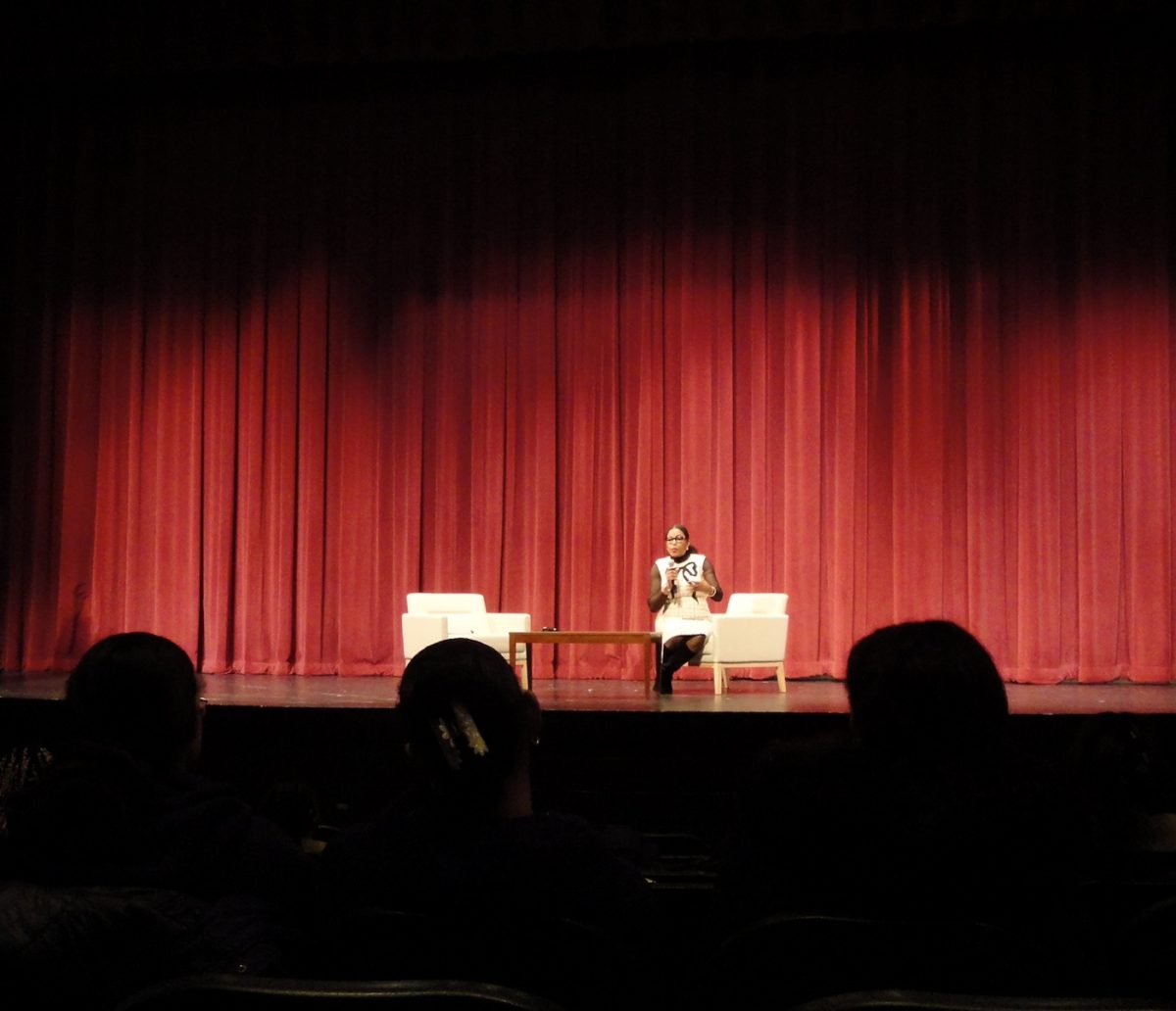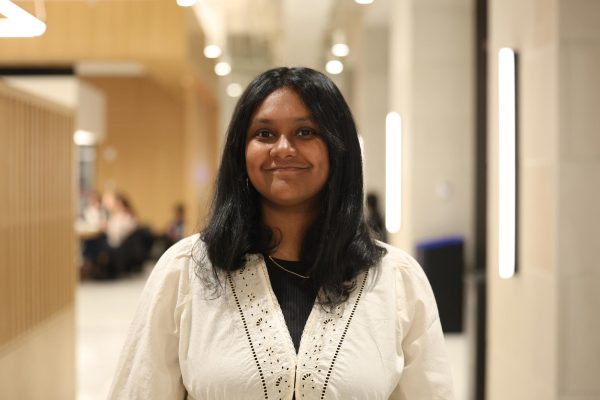On Feb. 20, Ilyasah Shabazz, daughter of Malcolm X and Dr. Betty Shabazz, spoke at Fordham Prep Auditorium as the Black Student Alliance’s (ASILI) keynote speaker for Black History Month. The event took place one day before the 59th anniversary of her father’s assassination.
Shabazz currently serves as the chairperson at the Malcolm X and Dr. Betty Shabazz Memorial and Education Center. Located in the Audubon Ballroom in Harlem where X was assassinated, the cultural institution is dedicated to the legacies of her parents and to carrying out cultural activations for social justice. In her career, Shabazz has worked as a producer, carried out extensive advocacy (including working with inner-city youth and accompanying former President Bill Clinton on his South African tour) and is a professor at the John Jay College of Criminal Justice. Shabazz is also a published author of four books, including her autobiography “Growing Up X: A Memoir by the Daughter of Malcolm X.”
“As we approach the end of Black History Month, I’d like to first and foremost give praise to our ancestors — all of our ancestors, no matter where we find ourselves born in the world,” she began. Her opening set the tone for the rest of her talk where she paid reverent homage to Black legacies, including those of her parents, and encouraged ASILI members to remain hopeful and active in pursuit of social justice.
Launching into the histories of Black leaders and lineages with reverence, Shabazz eventually came to center on the stories of her father X and her mother Dr. Shabazz.
“Continuing the legacy of my father, Malcolm X and my mother, Dr. Betty Shabazz is how I, too, hold on to hope,” she said.
Shabazz was two years old when her father was killed at the Audubon Ballroom in Harlem — an evening she recounted in her speech.
“On February 21, 1965, my mother, sisters, and I witnessed the assassination of her husband, our father — Malcolm X. My pregnant mother placed her body over my three sisters and me to protect us from gunfire, to make sure we would not see the terror before our young eyes.”
Shabazz credited her mother with the inspiration for her own work and for the safeguarding of her father’s legacy. In their household, it was her mother who told his stories, made his presence known and his values alive to their six daughters. It was after leaving home that she faced inaccurate retellings and portrayals of his legacy and memory.
“You see, my father burst onto the Civil Rights Movement as a young man in his 20s,” she said. “My father came along and said, ‘We demand our human rights as your brother.’… In emphasizing human rights, my father was saying that our capacity to care for one another must reach beyond ethnicity and religion.”
In setting the record straight, Shabazz also emphasized the importance of claiming and protecting narrative. “When we allow others control of our narrative, what we hear is that you can go to prison illiterate and miraculously walk out as Malcolm X, an icon. Because his kind of narrative diminishes the importance of family. It diminishes the importance of one’s foundation. It diminishes the importance of our morals, values, mentors… It diminishes the value of critical thinkers, the human family and the role of responsibility.”
Shabazz recounted the hard and tangible effort behind X’s work, including his skillful debating against Ivy League teams within prison cells, his close readings of dictionaries and fascination with etymology as well as his own family history. X’s father, a pastor, and mother, a recording secretary, were both thoroughly involved in the Universal Negro Improvement Association in the early 1900s.
“Reclaiming the legacy of Malcolm X and the narrative of our stories requires optimism,” Shabazz stated. “We must not fall into despair or lose hope.”
In her address to Fordham’s ASILI, Shabazz reiterated her call for students to remain hopeful and committed to justice, keeping the morals of justice, courage, collective action and strategy.
“I believe that you, as students and educators, are best positioned to lead the world in articulating a new vision for the 21st century. We as individuals and as a collective must bring about a more egalitarian society and fully educate all members. We must be self-reflective, honor truth and hold ourselves accountable for the narrative that history records for the next generation.”








































































































































































































